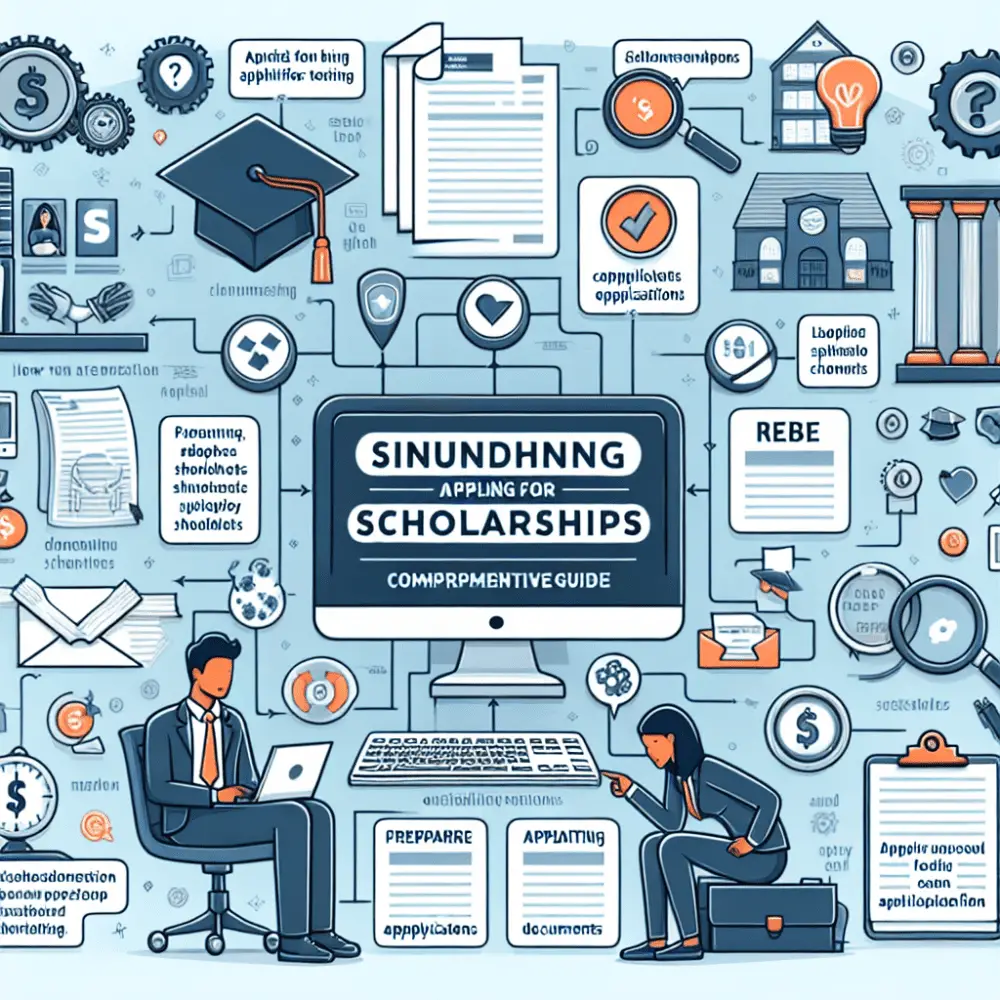
In today’s educational landscape, scholarships play a pivotal role in helping students Achieve their academic dreams without the burden of financial stress. Scholarships are essentially a form of financial aid that does not require repayment and is typically awarded based on various criteria such as academic merit, talent, or financial need. This guide provides a clear and concise roadmap to finding and applying for scholarships effectively.
Understanding different types of scholarships
Scholarships come in various forms and understanding the different types can help students identify which ones they are eligible for.
Merit-Based Scholarships
These are awarded based on a student’s academic achievements, talents, or other criteria such as leadership skills. Examples include scholarships for high GPA, excellence in sports, or exceptional artistic talent.
Need-Based Scholarships
Need-based scholarships are granted to students who demonstrate financial need. These scholarships consider the family’s income and other financial factors to determine eligibility.
Demographic-Based Scholarships
These scholarships are designated for specific groups such as minorities, women, first-generation college students, or veterans. They aim to provide opportunities for underrepresented populations.
Field-Specific Scholarships
Some scholarships are aimed at students pursuing specific fields of study such as engineering, medicine, or the arts. Professional organizations often offer these to encourage students in that particular industry.
How to Find Scholarships
Finding the right scholarship requires research and diligence. Here are some effective strategies:
Online Scholarship Databases
There are numerous online platforms dedicated to listing available scholarships. Websites like Fastweb, Scholarship.com, and Cappex allow students to create profiles and match with relevant scholarship opportunities.
School Guidance Counselors
High school guidance counselors are valuable resources for finding local scholarship opportunities. They often have information about scholarships offered by community organizations or local businesses.
College Financial Aid Offices
For those already enrolled or planning to enroll in colleges/universities, the institution’s financial aid office can provide information on institutional scholarships and external funding sources.
Community Organizations & Local Businesses
Many community organizations such as Rotary clubs, local foundations, or businesses offer scholarships specific to residents of a particular area or participants in certain activities.
Preparing Your Scholarship Application
Once you’ve identified suitable scholarships, it’s time to prepare your application meticulously.
Read Eligibility Requirements Carefully
Before starting an application process, thoroughly read through the eligibility requirements. Ensure you meet all criteria before proceeding to save time and effort on applications you may not qualify for.
Gather Necessary Documents
Typical documents required include transcripts, letters of recommendation, resumes highlighting extracurricular activities/achievements, standardized test scores (if applicable), and proof of financial need (for need-based scholarships).
Write Personal Statements/Essays Thoughtfully
Many applications require personal statements or essays explaining why you deserve the scholarship. Be honest about your achievements but also discuss challenges you’ve overcome and your future aspirations. Proofread meticulously before submitting.
Request Letters of Recommendation Early
If letters of recommendation are required, consider the following tips to ensure they support your application effectively:
- Ask Early:
- Reach out to teachers or bosses well in advance. This gives them ample time to write thoughtful and supportive letters.
- Provide Context:
- Describe how you are a standout candidate. Explain why you deserve the grant funds and what you aim to achieve.
- Highlight Key Attributes:
- Ask your recommenders to provide insights into your character, dedication, and goals. Highlight your potential for future success in your career endeavors.
- Emphasize Enthusiasm:
- Encourage recommenders to speak with enthusiasm and heartfelt sincerity about your qualities and achievements.
- Respect Deadlines:
- Make sure to respect the deadlines unequivocally and communicate these to your recommenders.
Structuring Your Request:
- Clear Objectives:
- Clearly state what you hope to achieve with the grant and how it aligns with your career goals.
- Detailed Information:
- Provide your recommenders with all necessary details, including deadlines, submission guidelines, and any specific points they should cover.
- Supportive Documents:
- Include your resume, personal statement, and any other relevant documents to help your recommenders write a comprehensive letter.
Writing Effective Letters:
- Insightful Content:
- Recommenders should offer insights into your character, work ethic, and potential for growth.
- Comprehensive Understanding:
- Letters should reflect a thorough understanding of your achievements, skills, and future aspirations.
- Structured Framework:
- The letter should follow a logical structure, presenting your strengths clearly and coherently.
Ensuring Quality and Credibility:
- Authenticity and Reliability:
- Letters should be genuine and trustworthy, reflecting an accurate portrayal of your capabilities.
- Transparency and Accountability:
- Ensure the content is transparent and holds up to scrutiny, demonstrating your suitability for the grant.
Conclusion:
By following these guidelines, you can secure strong, supportive letters of recommendation that enhance your application. Well-crafted letters can significantly increase your chances of receiving the grant, helping you achieve your academic and career goals. Remember, clear communication and respect for deadlines are key to a successful recommendation process.


















